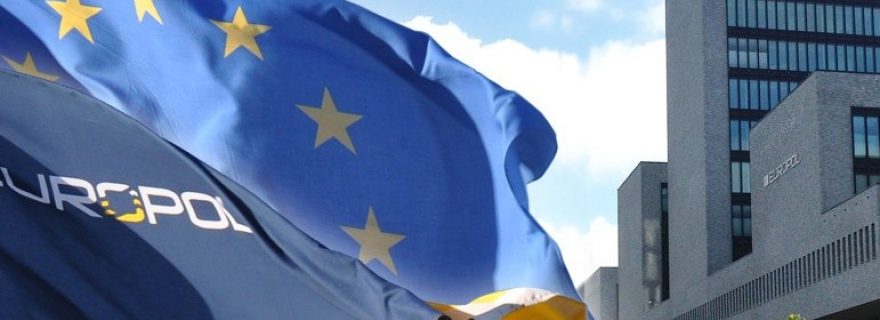Understanding Europol in three dilemmas
In their effort to become a meaningful actor as an information-sharing hub in the context of counter-terrorism, Europol struggles with deep-rooted dilemmas that have been present since the organization’s inception.
Europol is described on its website as the ‘European Union’s law enforcement agency’. While police officers from the EU Member States do indeed work there, the suggestion of Europol as a law enforcement agency is somewhat beside the point. This is because Europol does not have any executive powers to enforce laws. One of its primary functions is as a platform for the exchange of law enforcement information. To this extent Europol has 223 liaison officers, seconded from the Member States, third states and international organizations to its headquarters in The Hague, a central database (Europol Information System or EIS), and a message exchange system (Secure Information Exchange Network Application or SIENA).
Besides drug trafficking and organized crime, one of Europol’s priority areas is (counter) terrorism. Since the attacks in the US on September 11, 2001, Europol has undertaken various initiatives to become a meaningful actor as an information-sharing hub in relation to counter-terrorism. One of Europol’s latest innovations to do so is the European Counter Terrorism Centre (ECTC). Despite the transnational character of many terrorist incidents, Europol’s involvement in counter-terrorism has not been self-evident. For sure, attacks such as those in Paris in November 2015 led to a lot more information being shared with Europol. But to assume that transnational violence automatically triggers a dedicated transnational governmental response is too simple. Instead, the situatedness of the organization needs to be accounted for, that is, the political and institutional legacies that have defined – and continue to define – its functioning. What follows are three dilemmas that shape Europol’s role in relation to information sharing in the context of counter-terrorism.
It’s the politics, stupid!
The creation of Europol was formalized in the Treaty on European Union, article K.1(9), signed in 1992. The discussion about whether to or not to set-up a European police office had been going on for a number of years already, the immediate background being the decision in 1985 to abolish internal border controls between the Member States and how to effectively tackle cross-border crime and drug trafficking in such a situation. The West-German Chancellor Helmut Kohl stoked the fire in 1988, and again in 1989, by advocating for a ‘European FBI’, but this fell to deaf ears of his European colleagues. The key point is that Europol was the outcome of a high-level political decision rather than growing out of the needs of police practitioners. Political haggling about what the organization should look like – read: sovereignty concerns – thus defined Europol from the very beginning. Much of the 1990s were spent negotiating (and ratifying) a convention stipulating what Europol could and could not do.
What about police practitioners?
Europol as the brainchild of politicians pitted the organization against other forms of international police cooperation that had formed on the basis of the needs of police practitioners. The Police Working Group on Terrorism (PWGT), set up in 1976 as a quick mechanism to exchange information on terrorism, is one example. It emerged on the basis of personal contacts and mutually earned trust, and now has a proved record of effectiveness. While these informal and bottom-up networks have their own problems, particularly in terms of accountability, they do explain why Europol has not always been greeted with enthusiasm by police practitioners. Europol was parachuted into the police universe with the expectation that once the organization was set-up, its added value in terms of information exchange would follow almost by default. Reality proved to be more stubborn.
Overlap with the intelligence and security services
The police is not the only actor involved in counter-terrorism. This is also a domain where the intelligence and security services are active. Both organizations have very different tasks, competences and cultures. Internationally, this has translated into European intelligence and security services operating their own platform for information exchange. This is the so-called Club de Berne (since 1971), and specifically for jihadist terrorism the Counter Terrorism Group (CTG), founded in 2001. These networks are informal and not part of official EU structures, whereas Europol is a formal agency of the EU. Moreover, the Treaty’s article 4(2) has made the domain of national security off-limits to any form of EU involvement. The implication being that, taking into account the differences between the police and the intelligence and security services, and the informal nature of the CTG, there are serious constraints on what kind and how central a role Europol can play with regard to information exchange on terrorism.
Conclusion
The above-mentioned dilemmas put constraints on what kind of role Europol can play with regard to information exchange on counter-terrorism. Moreover, as has happened in the past, it can trap Europol in a vicious cycle: the added value of the organization is limited due to a lack of information submitted by the Member States, which leads to expectations of Europol not being realized, which, in turn, leads to less information being shared with it. But what does the future then hold for Europol? An extensive and detailed Roadmap to enhance information exchange, introduced by the Dutch EU Presidency in 2016, has prominently endorsed the idea of a ‘practitioner centred approach’, but it also contains much technology speak with references to the interoperability of information systems through a ‘single-search interface’. Time will tell what reality surfaces for Europol.
The chapter on which this blog is based is co-authored by Jelle van Buuren and originally appeared in Dutch in the handbook Terrorism (Terrorisme. Studies over terrorisme en terrorismebestrijding (2018), edited by E. Bakker, E.R. Muller, U. Rosenthal and R. de Wijk) published by Wolters Kluwer.


